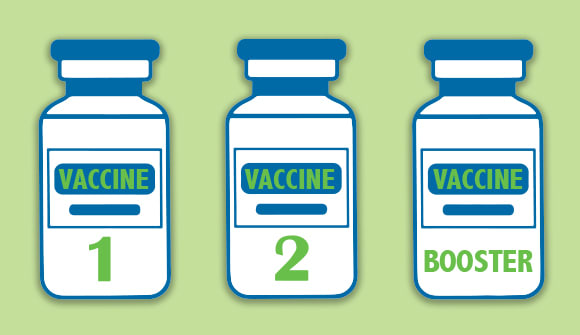COVID conversations
How to approach difficult discussions about safety during the pandemic.
Article Date:

At this point, most of us have had to deal with some uncomfortable conversations about COVID-19. Perhaps the person you were talking to wasn’t wearing a mask, and you asked them to do so. Or maybe someone got on your case for standing too close in the grocery checkout line.
These conversations can be hard and awkward because we all have fears, misconceptions and personal experiences related to COVID-19 that make our perspective of it unique.
Pia Ristaino, MS, LMHC, MCAP, licensed mental health counselor for Baptist Behavioral Health, shares some tips for navigating these conversations.
Address and manage your own fears and anxieties: Recognizing these, and even talking through them with a trained therapist or counselor, may help you be more empathetic toward others and more accepting of someone who has a viewpoint different than your own. Anxious communication can sound like anger, and therefore managing your own fears can help you communicate in a polite way.
Withhold judgment of another person’s behavior or actions: For example, someone may have a health condition that prevents him or her from wearing a mask. If you are standing near a person who is not wearing a mask, you could try saying, “I'm sorry, but I am going to distance myself to keep us both safe.”
Empathize and educate: Practice positive communication when providing information and making a request. Remember, it is not what you say as much as how you say it. Kindly offer guidance to those who may not know much about COVID-19, and depersonalize a request so it doesn’t feel like an attack. For example, instead of saying, “You need to stand six feet apart,” you can say, “I’m not sure if you’re aware of this, but we’re practicing social distancing here. Let’s stay safe. Please make sure you’re standing six feet apart.” This feels more like a team effort rather than a direct command.
Ristaino said these same lessons can be applied to strangers, friends or family members. If you notice conversations like these, or any other aspect of life during the pandemic, are making you anxious, consider talking to a trained therapist or counselor to come up with a plan to ease your anxiety.
“When we are anxious, it means we’re feeling powerless about something,” Ristaino said. “You can help to diminish powerlessness by taking control and implementing a plan of action.”
If you are interested in receiving behavioral health support, please contact Baptist Behavioral Health at 904.376.3800 to set up an appointment. Baptist Health employees also have the option of receiving free, confidential support through our Employee Assistance Program.



